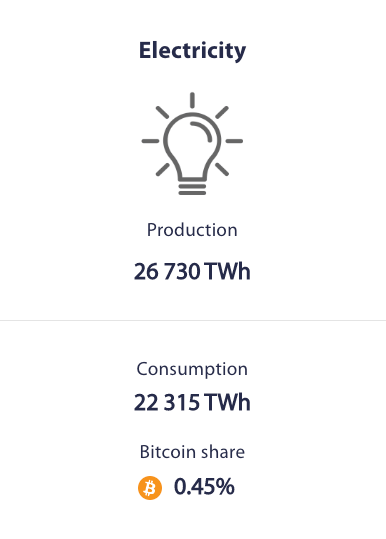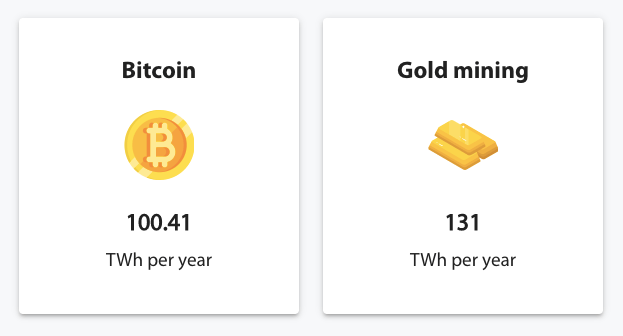Bitcoin mining and its energy consumption have recently been the subject of many heated debates. As governments and institutions around the world keep introducing new measures to combat pollution and climate change, Bitcoin’s energy-guzzling network sticks out like a sore thumb.
Various data aggregators and trackers work around the clock to provide the market with the exact amount of energy the network consumes. Many offer interesting comparisons with the goal to illustrate just how much power Bitcoin requires.
For example, some data shows that the amount of electricity consumed by the Bitcoin network in a single year could power the entire University of Cambridge for 758 years. The networks’ one-year energy consumption could also power all the tea kettles used to boil water in the U.K. for 23 years. Bitcoin also uses more power than all of the fridges and TVs, and almost twice as much power as all of the lightning in the entire U.S.
While popular, this narrative doesn’t paint a clear picture and intentionally obscures the broader context.
Data analyzed by CryptoSlate shows that Bitcoin’s share in the global consumption of energy is minuscule. According to the Cambridge Bitcoin Electricity Consumption Index, Bitcoin’s share in the global consumption of electricity is just 0.45%. This estimate might be slightly off today as it’s based on global energy statistics from 2018, but nonetheless puts Bitcoin’s consumption into a broader context.

Comparing the energy consumption of the Bitcoin network to gold further illustrates this point. Estimates from 2019 showed that gold mining consumes around 131 TWh of energy per year. Buy the effects gold mining has on the environment don’t stop with its consumption of electricity. Assessing an industry’s impact on the environment requires looking at the amount of pollution it causes — i.e. the carbon dioxide it releases into the atmosphere, the land it deforests, the water sources it contaminates, etc.

And while experts are still debating the sustainability of gold mining, the direct effect it has on the environment is visibly higher than Bitcoin mining.
However, governments and institutions around the world aren’t racing to instate strict bans on gold mining.
Unlike gold and…
Click Here to Read the Full Original Article at Bitcoin (BTC) News | CryptoSlate…























